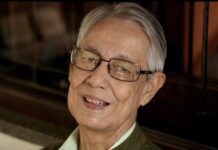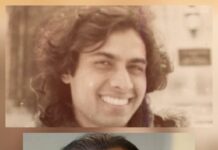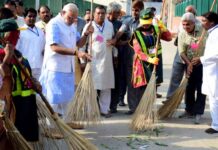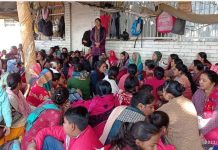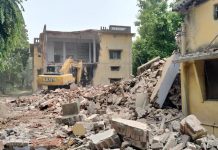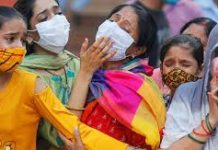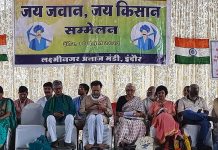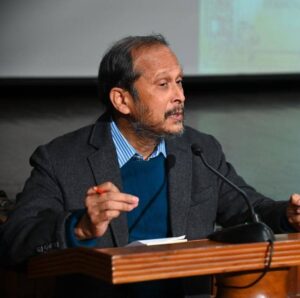
The Official Emergency was a hinge moment of our democratic history. Just as 50 years have passed since that unfortunate proclamation was signed by the then President Fakhruddin Ali Ahmed, we are reading and listening to a rush of reminiscences of those eventful days. I would like to add mine.
When the Emergency was declared in 1975, I was an undergraduate student pursuing English ( Hons.) at the Khallikote College in Berhampur town of Orissa. I belonged to a lower middle class family; my father was a government servant and my mother was what we call today a homemaker. Political activism was alien to our domestic environment. My siblings and I were confined to a routine life as ‘normal’ students.
So that fateful day, June 25, didn’t seem to bring any visible rupture in our daily life. We went about our routine almost the same way as before. We did come to know about some arrests of political leaders and activists, but that didn’t affect us personally much. Like most others whom we knew and socialised with, our personal trajectory went on somewhat smoothly, unaffected by the political convulsions that was happening in the different parts of the country.
As a matter of fact, the Emergency brought about a welcome change in my life: I was introduced to students’ union politics. It was a students’ union of a different kind. Before the Emergency, the Khallikote College Students’ union was dominated by the AISF, the student wing of the CPI which was a major political force in the Ganjam district of which Berhampur was the biggest town.
Hooliganism was the order of the day in the students’ union election in our college. Both AISF leaders and the rival gangs used to fight it out with sticks, knives and crude bombs. We never went out of home on the election day.
After the proclamation of the Emergency, our college students’ union was disbanded; the authorities announced the formation of a nominate Student’s Council: toppers of each stream — Science, Arts and Commerce — in each batch were inducted into the Council. So also those who had won the award in the previous year’s sports and other extra-curricular activities. I found my name in the list as I had won the Berhampur University’s best debater trophy in March that year.
There were altogether, if I remember correctly, 33 members. There was only one active political activist in the group: it was Ali Kishore Patnaik. He was then, I think, president of the college’s SFI unit. But he was part of the group on the basis of his academic merit.
Prof Prafulla Mohanty, the designated students’ union adviser, told us that there would be election for the post of president and general secretary and any of the 33 members could file nomination for it. I was persuaded by some friends to enter the race. I did, for the post of general secretary. Three others too put their hat in the ring. My tough competition came from a senior brilliant student of English literature who was pursuing his MA ( ours was a post-graduate college). My friends and I did intense canvassing with the limited constituency. And I won with a very narrow margin.
There were three candidates in the presidential race. Ali Patnaik won hands down. Ali and I got along very well; we did a lot of work to improve the library, to add to the sports infrastructure, to refurbish the college laboratories. Politics was clearly off-limits. But we did organise sports meet, debate and quiz competitions, cultural festivals and a spectacular annual function addressed by Prof Shrriam Dash, the well-known political science professor.
In 1977, I came to the JNU. It was just after the Emergency had been lifted and the elections had seen Indira Gandhi and the Congress party routed. Sitaram Yechury was the JNUSU president and Anil Chaudhury was the general secretary. ‘ Punish the guilty of the Emergency’ slogan was renting the air.
It was again a different kind of students’ union I came across; SFI dominated the political discourse. I was dazzled by the night-long heated debate in the university general body meeting; such meetings happened quite frequently in those months due to the politically surcharged atmosphere. That excitement drew me to active politics in the JNU campus.
Jasbir Singh and G K C Reddy inspired me to join a small socialist outfit; that shaped my ideological orientation in the university days. I hold on to them even today.
Discover more from समता मार्ग
Subscribe to get the latest posts sent to your email.


